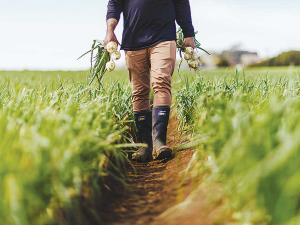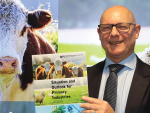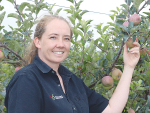Productive land is just one of the ingredients for growers to deliver fresh healthy food to New Zealanders, says Horticulture NZ.
Together with productive land, growers need labour, less compliance and lower input costs, says Hort NZ chief executive Nadine Tunley.
She made these comments following the Government's recently released National Policy Statement for Highly Productive Land (NPS-HPL), designed to protect the country's most productive land and providing security for both domestic food supply and primary exports.
According to Tunley, HortNZ has been advocating for nearly a decade for government policy that recognises the importance of the best soils and ensures that they are prioritised for what they are best for - producing healthy vegetables and fruit.
"All along we have said that with good planning, New Zealand can have fresh vegetables and fruit, and houses," she says.
Tunley notes that HortNZ will continue its advocacy to ensure that growers can sustainably and profitably use highly productive land.
"Our fight will go on. It's no use protecting our best land if growers cannot get access to inputs like freshwater, are bogged down with compliance, and can't afford fertiliser or to transport their produce," she adds.
"At the same time, growers need to know they have a skilful and reliable workforce available to plant, pick and pack. We also need to ensure that growers can afford to invest in new growing methods, in response to climate change."
Tunley says growers only need ongoing issues in one of these areas for their viability to be compromised, which could mean vegetables and fruit cannot be sustainably grown in New Zealand in the future.
Agriculture Minister Damien O'Connor points out that over the last 20 years, about 35,000 hectares of highly productive land has been carved up for urban or rural residential development - 170,000ha of this has been converted to lifestyle blocks.
"Once land is built on, it can no longer be used to grow food and fibre. That's why we are moving to protect our most fertile and versatile land, especially in our main food production areas like Auckland, Waikato, Hawke's Bay, Horowhenua and Canterbury," O'Connor says.
He says highly productive land provides food for New Zealanders, significant economic and employment benefits to communities and underpins the value of New Zealand's primary sector.
"Our Fit for a Better World roadmap that we developed with the sector will add $44 billion over 10 years to our primary sector exports but is dependent on maintaining access to our highly productive soils," he notes.
He claims the NPS-HPL enhances protection for highly productive land giving farmers, growers, and other food producers certainty into the future, and provide greater economic security for all.


















